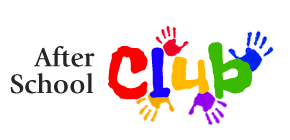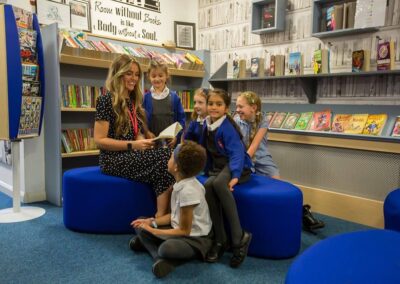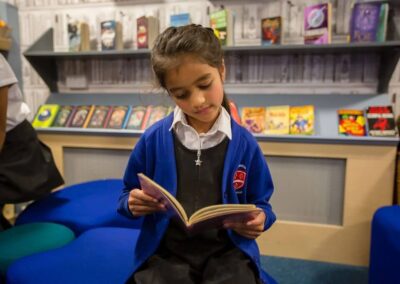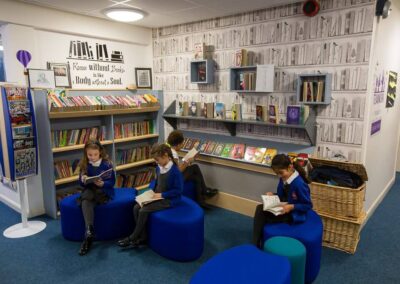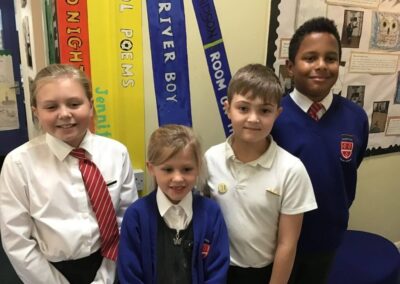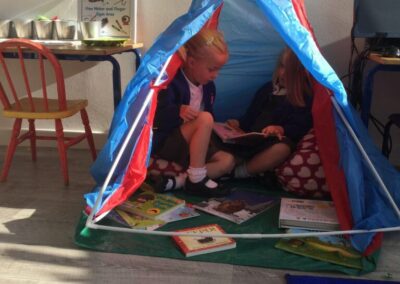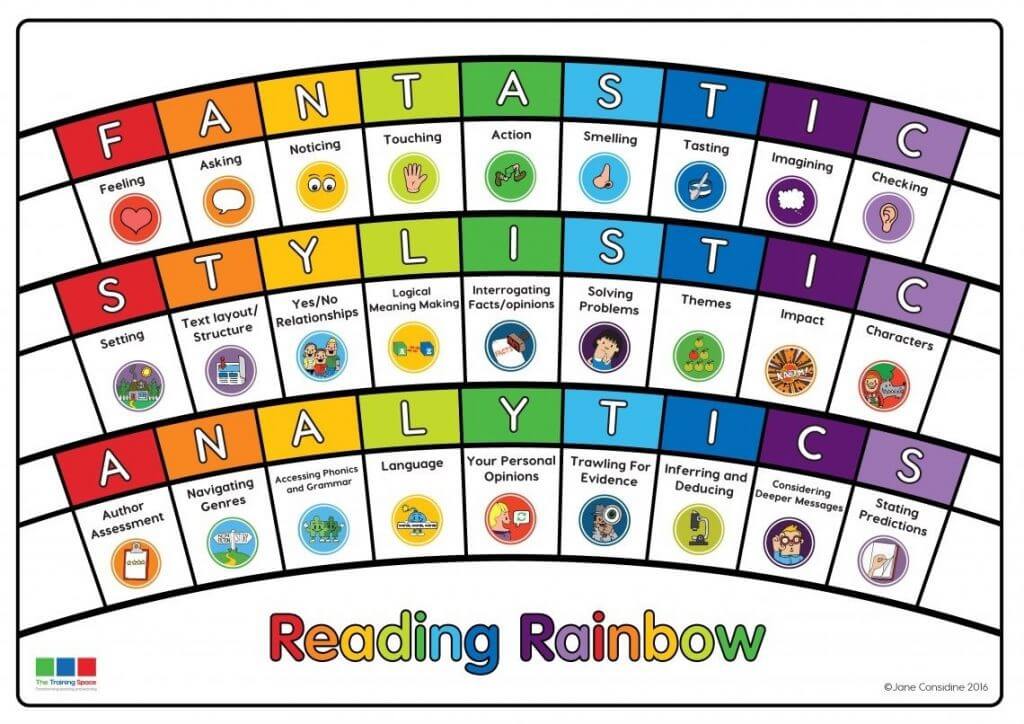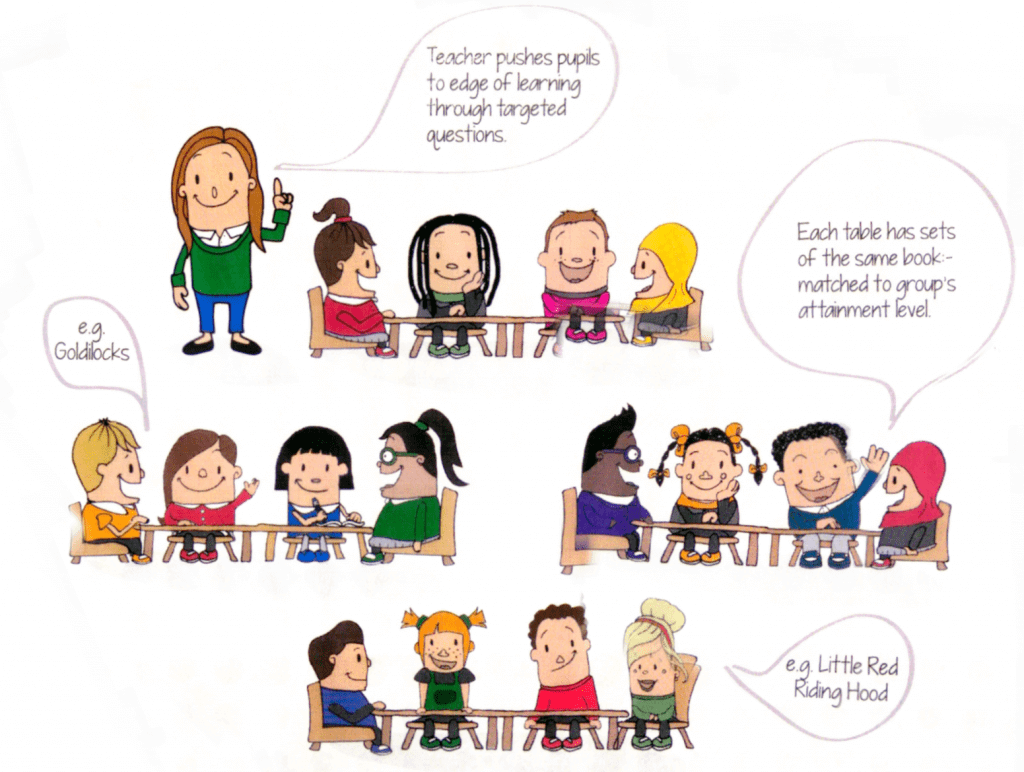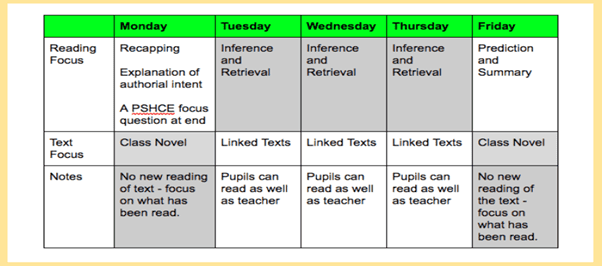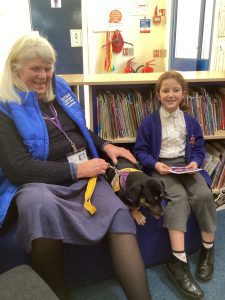Upcoming School events
First day of term for Key Stage 1 and 2
First day of term for Key Stage 1 and 2
Reading
The Rationale behind Cogenhoe’s Reading v1 1
The Phonics Rationale
Suggested Reading Texts – Whole School
Cogenhoe Reading Spine 2023-2024 SJ 1
Progression in Reading V1 1
Accelerated Reader Leaflet updated
Reading Intention:
At Cogenhoe Primary School, reading for pleasure and cultivating the love of reading is actively encouraged throughout the school. Great emphasis is placed on developing pupil’s skills in reading from the Early Years , so that they are able to explore and discuss challenging texts confidently through our daily “Book Talk” sessions. Both shared, modelled and independent reading has a specific focus and is a fundamental part of a child’s reading journey. Teachers use a range of rich texts, so that pupils use of vocabulary and enjoyment of reading is heightened. The breadth of our curriculum ensures that pupils have access to a wide range of poetry, fiction and non-fiction.
We actively promote and celebrate our love of reading through our vibrant environment, reading for pleasure areas, whole school assemblies and celebration days and class reads. In addition to this, our parent community are actively involved and regularly attend our workshops,’ Book and a Biscuit’ Drop Ins and demonstration lessons.
Reading Implementation:
We use a Whole Class Teaching Approach to Reading across the school using Rosenshine’s Principles in Action-adults routinely model being an effective reader at the start of a lesson then ‘hand over’ the skill to be assessed to the children. This enables children to be clear on what they need to do and how they can go about this. Using our T&L Policy we use: No Hands Up, partner talk, white boards, recapping, small, scaffolded steps, questioning understanding, reviewing and finally independent practice (15 mins daily) = high success rates
How do we teach comprehension?
At Cogenhoe Primary, we use The inference Programme as a process to teach comprehension. It is impactful because it is based on research of how children learn to read and rather than teaching discrete ‘skills,’ it develops children’s comprehension strategies in order for them to be able to independently understand a text deeply. It also also complements our writing approach (Talk for Writing) and together they strengthen the children’s learning in both areas.
The main focus of the Inference Programme, is that through talking and thinking we are able to understanding a challenging text with the aim that deep thinking becomes a habit of the mind.
Even in EYFS, we will start to discuss and talk about our books including the pictures so that we not only develop children’s phonetic skills we also start to develop their comprehension ones too.
Children are encouraged to use reading sentence stems to help structure their answers e.g.
- I think that…
- The reason I think this is because…
- In my opinion, …
- The evidence to support my opinion is…
- I like… I do not like…
- This reminds me of…
Book Talk KST1
Book Talk’ is used as a systematic way to teach reading strategies across the whole school from the end of Early Years to Yr 2 . It is underpinned by certain guiding principles, which are outlined below:
- Pupils are organised into reading attainment groups and share a set of the same books pitched at their level with the appropriate challenge.
- All pupils in the classroom will be accessing narrative, non-fiction or poetry at the same time.
- Pupils will partake in a 4 times a week 30 min ‘Book Talk’ session and once a week will intensively work with the class teacher for an inference session.
- Sessions are themed around open-ended questions to tackle the three layers of the Reading Rainbow’.
“On average, reading comprehension approaches improve learning by an additional five months’ progress.” Education Endowment Foundation.
We acknowledge the use of techniques such as graphic organisers and drawing pupils’ attention to the text structures are likely to be particularly useful when reading a range of non-fiction texts.
- A hallmark of sessions is developing reading for meaning and oral comprehension techniques.
- Book Talk is structured with three reasons to read, which are taken from the Reading Rainbow. One reason is taken from the top layer of the rainbow under FANTASTIC. The second reason is taken from the STYLISTIC layer. The third reason is taken from the ANALYTICS layer. These are introduced to pupils in chunks and it is through these generic lenses they think and discus their reading material.
- The session works best if they operate like conversations about books and ‘hands up’ is not used, so there is a natural flow of talk about what they are reading.
- During these sessions, the pleasure principle of reading is fostered and highly engaging picture books should be used in favour of phonic-based books to heighten engagement and excitement.
- ‘Book Talk’ is sharply focused on reading for meaning, listening to friends read and talking about books.
- During sessions, group members can either take turns to read, read in pairs or read to themselves. The teacher can direct this.
The Whole Class Teaching Approach to Reading kst 2 ( Mr Booth).
Monday – Reflects on the class read – Recaps previous week’s reading (questions generated using VIPERS)
Tuesday – Thursday – Linked Texts – Inference and Retrieval
Friday – Class read – summary and prediction activities.
Early Reading
At Cogenhoe, we place significant importance on Early Reading as we know that fluent readers will learn more, because they can read and gain knowledge for themselves. If you were to visit our school you can expect to see that:
- direct, focused phonics is taught every day in Reception and key stage 1
- children read from books with the sounds they know, while they are learning to read
- teachers and teaching assistants provide extra practice through the day for the children who make the slowest progress (the lowest 20%)
- Our target is that by Year 3 and above can read age-appropriate books, if not, the weak decoders access Switch on Reading and weak comprehenders access the ‘Inference Training’ intervention.
- teachers instill in children a love of literature: the best stories and poems
We work in close partnership with parents to support them in supporting us in their child’s reading journey via Seesaw.
Curriculum
Like with the writing curriculum, the Talk for Reading comprehension curriculum is sequenced so that it is cumulative, whereby the children’s knowledge is constantly revisited and built upon. It has also been designed so that, where appropriate, the texts chosen broaden and strengthen the knowledge of our Wider Curriculum.Furthermore, the texts used have been carefully selected to ensure that there is a balance of classic, modern, information and culturally diverse ones.Every class has a Class Reader from the Reading Spine to ensure progression and continuity and Topic books are displayed to ensure children read for information and interest.
Reading is taught through the T4W sequence. When a new model text is introduced in T4W the teacher will use “good comprehender” skills and children will annotate and record their ideas in their Literacy Book (wonderings, predictions, vocabulary). Children discuss like, dislikes, patterns and puzzles and complete Never Heard the Word grids. Oracy and fluency is developed through Story Mapping.
Enrichment – Every day is World Book Day!
Our ambition is to drown our children in a sea of wonderful, engaging and memorable reading experiences from: visiting authors and illustrators, participating in World Book Day, visits to the theatre and having the opportunity to attend book clubs, book swaps and read to a variety of children and adults across the school. For us, everyday should be World Book Day! For us at Cogenhoe, reading culture is as important as phonics and comprehension.
SLT listen regularly to the lowest 20% of readers and know them well.
We interview and train our Pupil Reading Ambassadors they run Book Clubs, act as Reading Buddies, maintain appealing library areas, lead Reading Assemblies, visit school within the trust, carry out book audits, write a Parent Reading Newsletter and contribute to the reading culture within CPS that celebrates and promotes a love of reading. Our Cogenhoe Cheer write book reviews for their magazine.
Remote Learning
During any remote learning we teach our reading curriculum online. Our teachers have carefully adapted their teaching strategies to ensure that your child’s learning can continue in a similar way to as it they were in class. Phonics is always taught live on a daily basis and comprehension is taught using a careful balance of live lessons and independent tasks. Please see our remote learning strategy which is on the website for more information.
SEND and Disadvantaged Children
We believe that Book Talk is inclusive and through careful scaffolding all children will be able to achieve and make the progress which they are capable of. All pupils will be appropriately supported throughout the phonics and comprehension lessons so that they can access all of the learning; consequently, ensuring that a ceiling is not placed on any child’s educational opportunities in reading.
At Cogenhoe,we believe that quality first teaching should always be the priority when addressing children’s needs. However, we do employ numerous research-based interventions to support our early or developing readers because we recognise that sometimes, children need a little help on the way. Here are some of the interventions that we run:
- Switch on Reading
- Get Reading intervention programme
- Fresh Start intervention programme
- Sounds-Write intervention programme
- 1:1 readers
- PIRA as an assessment tool for diagnosing areas for development and focussed teaching
- Specific pre-learning and targeted work for the lowest 20%- through Before School and After School Interventions
- Reading Shed
Meet Joanna and Maddie our Pets as Therapy volunteers, who also come into school to listen and spend time with our readers.
How is reading assessed?
- Book Talk is assessed daily and children track their own progress through the Reading Rainbow.
- Each term in Years 1-6 your child will sit a PIRA assessment.
All children in Kst are regularly Star Tested and you can log in and track their progress. - In Years 2 and 6 your child’s reading will be further assessed using national exemplification materials.
- In Year 6 your child will sit a reading SAT (Standardised Assessment Test).
- Your child will be heard read on a 1:1 basis regularly. Senior Leaders listen to the lowest 20% of our readers.
We want our focus to be on the teaching of reading rather than endless assessments but we will periodically take time to see how your child is doing through an assessment and if ever we need to do more assessments we will. We are always guided by your child’s needs and will adapt our teaching and approaches as necessary.
In Key Stage 2, we use a programme called ‘Accelerated Reader’ to continue to track and monitor our children’s progress and motivate them to continue to keep reading in order to reach the Millionaires’ Club. Parents also have access to this on-line system so that they too are able to see how their children are progressing. Please click on the video below to learn more about how the programme works:
Please remember to log on to the Accelerated Reader site at home and quiz on the books that you have read
Renaissance
As an adult, you can monitor the progress your child makes and find out how they have been getting on with the quizzes by logging onto their account, user name and passwords are in their reading diaries. Please contact the office should you need support.
Log in as normal, but this time you will be able to view a range of reports to let you know how your child is getting on.
What makes Reading at Cogenhoe so special?
Throughout the school year we hold a number of “Big Book Swaps” in the school hall.
Our reading trolley/shed is available for all members of our school community to access at any time; on the playground, before school and after school.
We take part in exciting competitions and reading challenges throughout the year, to earn house points for our team.
We celebrate “World Book Day” annually in a BIG way!
Our wonderful reading dog comes to visit us every week and loves listening to our children read.
For our more gifted readers, we work in partnership with our feeder Secondary Schools to take part in, “The County Big Book Quiz”.
We have “Mystery Readers” who sign up to come and share a book with a class- who will it be this week?
When our Reception children start school, they are paired with a Year 5 and Year 6 reading buddy to enjoy different reading experiences throughout the year.
Key Stage 2 children are entered into a reading raffle every half term if they have been successful on their “Accelerated Reader quizzing”.
Throughout the year, we invite the wider community into our school to take part in Reading workshops, demonstrations and events.
Our love of reading is further established by our frequent visits from real life authors who motivate and inspire our children even further.
Children are encouraged to complete larger, meatier texts to develop their vocabulary in order to become part of our “Millionaire Club”.
If you have any further queries, please do not hesitate to speak to Mrs Blackwell or Miss Kelly , who is always available to meet with parents to ensure that your child is reading the correct book for their reading level and interest. You can email her directly with any Accelerated Reader queries in the School Office.
Reading Impact:
Every child at our school is a reader, who through exceptional experiences and opportunities are confident to select their own texts to enjoy and gain information from. Our children understand the importance of reading and consistently strive to gain high outcomes.
Data: July 2023.
Key Stage Two attainment of the high standard (110+) in Reading (27%) was in line with national (29%) .
Key Stage Two attainment of the expected standard (74%) was above above national (73%).
Key Stage One attainment of the expected standard in reading (79%) was above national (68%) and the higher standard was also above national at 28%. National (19%)
Our Phonics data, for the last three years has been significantly above national and in the highest 20% of all schools. Cogenhoe 835 National 68%. Average Score 35.
Early Years Foundation Stage attainment of the expected standard in achieving GLD 70% was also significantly above national and in the highest 20% of all schools in 2023.
By the time the children reach the end of our reading curriculum, they will have experienced a rich variety of the finest literature in order to have moved from learning to read to reading to learn. They will be able to read fluently and understand well what they read. They will able to engage in meaningful discussions about literature and through exposure to a wide range of Book Talk Rainbow vocabulary they will have a vast array of words at their disposal.
Reading evidence will be recorded in Reading Group Books (KS2 only) and in T4W Books. The environments will also evidence the positive reading culture and ongoing teaching.
Tour our school and join in with Book Talk . You will see all children in Kst 1 are challenged to read a correct phonic stage book and apply their phonic knowledge to bridging books and their Pie Corbett Reading Spine Book Talk book . All Kst 2 children are challenged to make links with their Accelerated Reader selected book, our inference learning and Book Talk discussion . Using this approach they will then discover the richness the whole curriculum has to offer.

